Lake Hopatcong Commission
Water Quality Monitoring
Effective May, 2010 the Water Quality Monitoring
program will no longer be funded through the Commission's operating budget since
the Commission has not received a State budget appropriation to continue its
legislative mandate to protect Lake Hopatcong. The Water Quality
Monitoring program for 2010-2013 will be funded through a
SFY2010 NJ DEP
319(h) non-point source pollution grant.
The water quality
monitoring program is conducted by the Commission's Environmental Consultant,
Princeton Hydro, LLC.
In-lake monitoring takes place during the growing season from May through
September each year at eleven locations.
Beginning in 2006, supplemental monitoring will be done at near shore,
in-lake sampling stations to assess the water quality benefits associated with
the Best Management Practices (BMP)
structures to be installed as part of the Commission's 319(h) grants awarded by the
NJ Department of Environmental
Protection (NJDEP). In 2010, three additional in-lake stations were
added to assess the water quality improvements associated with additional grant
projects funded through a SFY10 319(h) grant.
In
2006, the Commission staff received approval through two Quality Assurance
Protection Plans (QAPPs) from NJ DEP to collect baseline (non-storm events)
water quality samples from tributaries that drain into Lake Hopatcong and to
collect composite stormwater samples from locations that have been selected for
the installation of specific BMPs.
In 2007, the
Commission began additional sampling in conjunction with the U.S. EPA Targeted
Watershed Grant (TWG). Additional stormwater sampling is done
near seven additional sites around the lake. Also as part of the
Commission's effort to promote the use of Lake-Friendly Fertilizer, another
component of the TWG is to conduct sampling to collect surface runoff from lawns
that have been treated with both phosphorus and non-phosphorus fertilizer in
order to measure the difference in the amount of phosphorous entering the lake.
The
water quality monitoring program is important for several reasons:
-
continue
the baseline water quality monitoring database for the lake
-
identify
long-term trends in water quality
-
quantify
and objectively assess the success and potential impacts of lake
restoration efforts
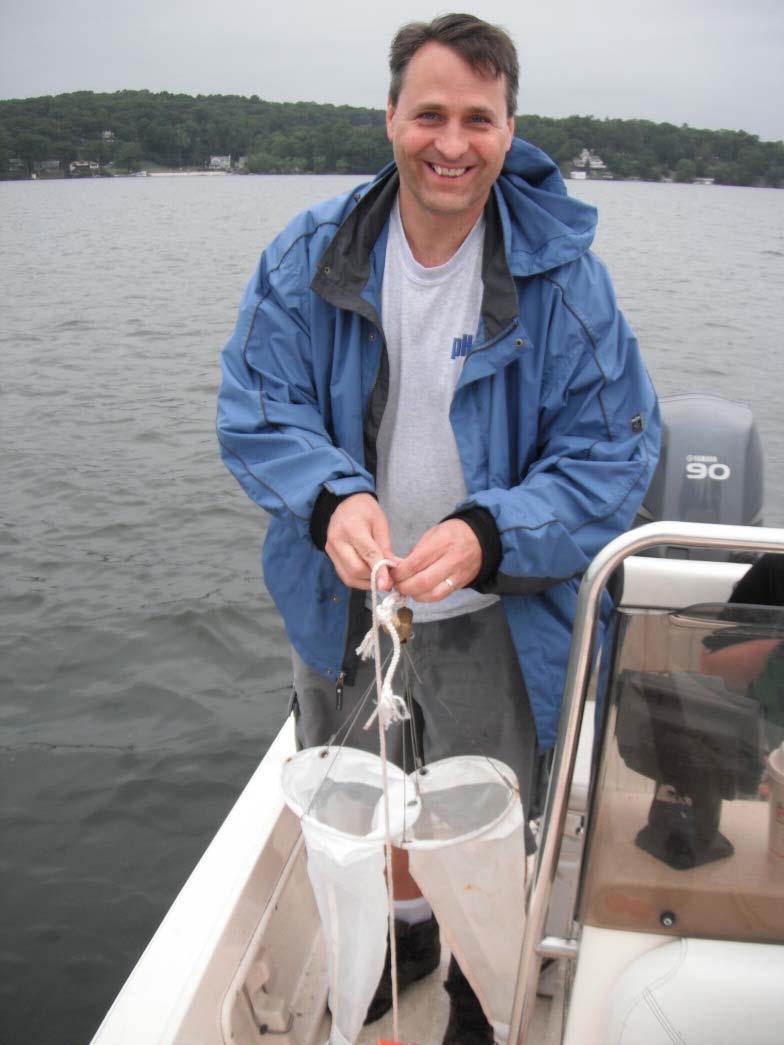
Dr. Fred Lubnow of
Princeton Hydro, LLC monitoring at mid-lake Station #2 (2012)
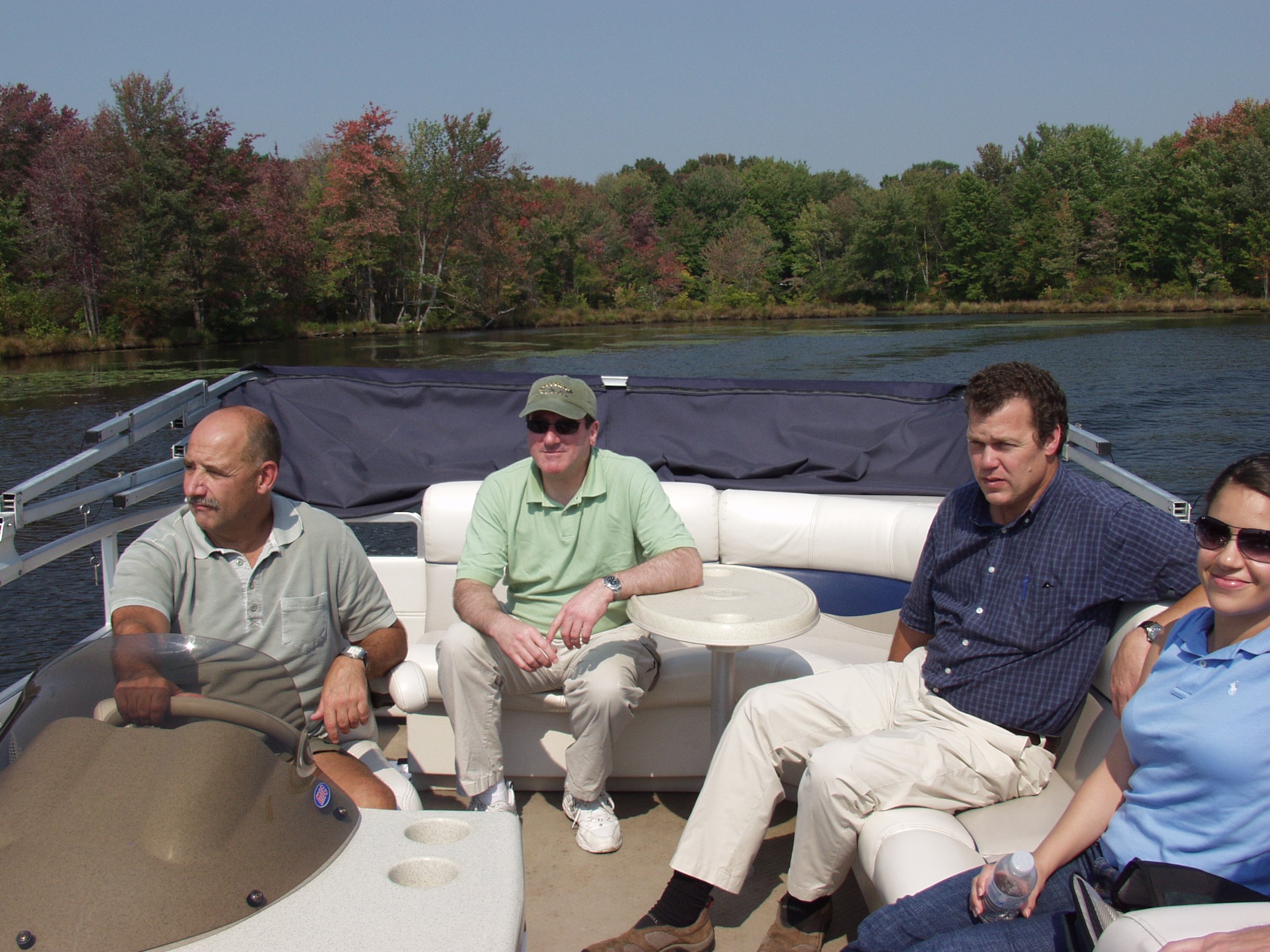
Hosting visitors from US
EPA Region 2 and NJ DEP Watershed Management (9-26-07)
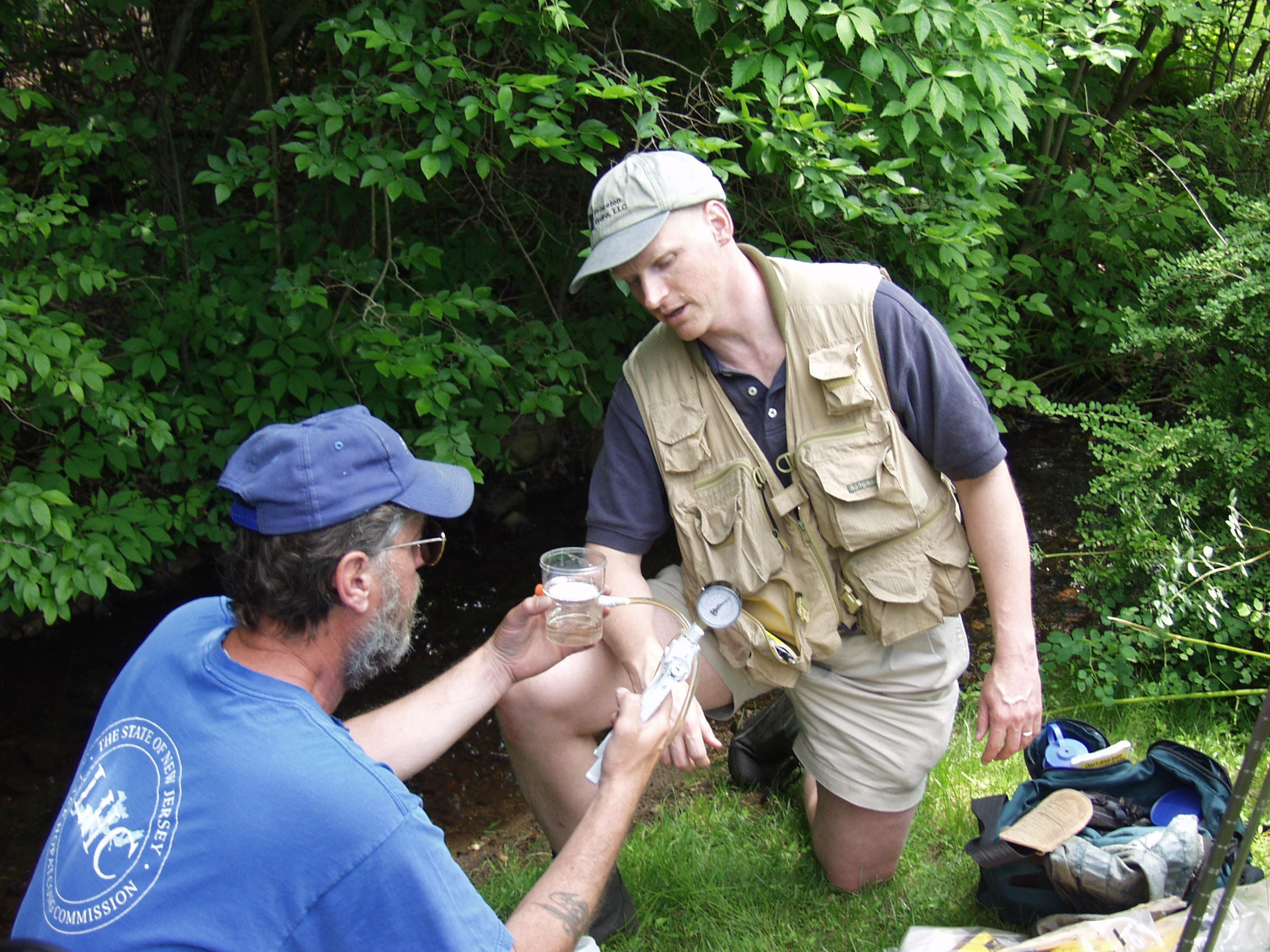
Tributary Monitoring
Training (6-21-06)
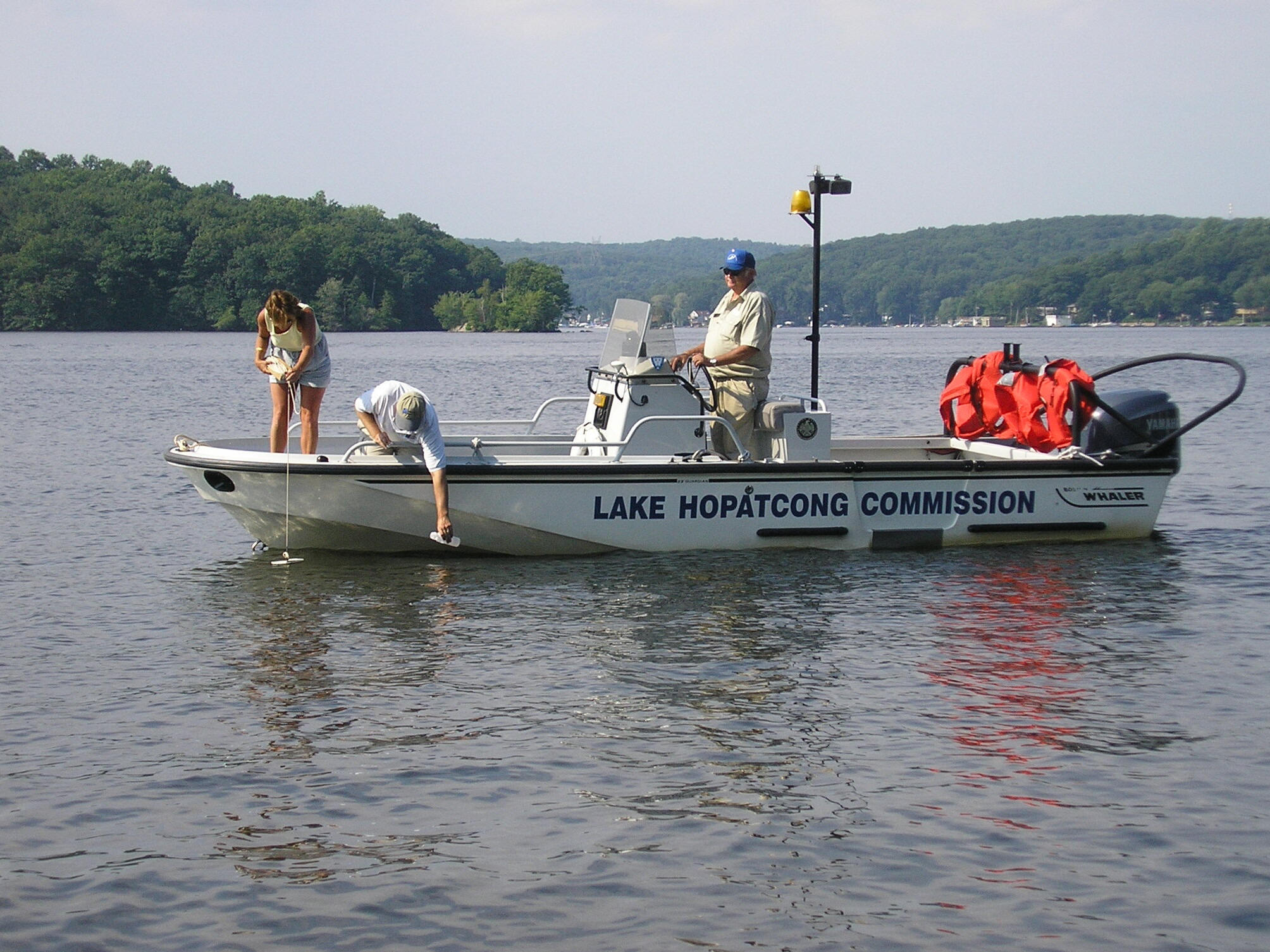
Lake Monitoring
across from Liffy Island in Woodport Cove (2005)
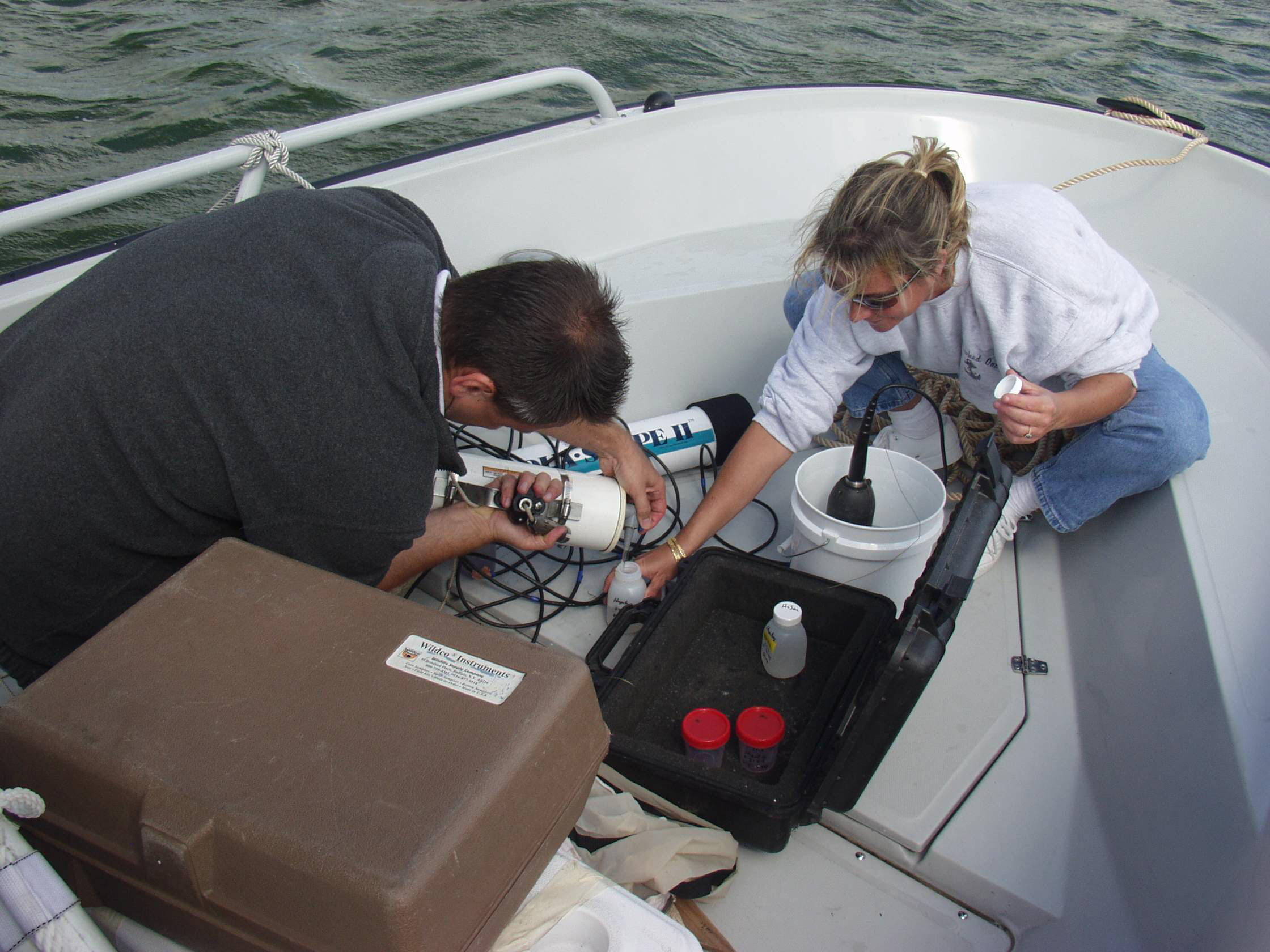
Lake Monitoring on
August 13, 2004 at Station 2 Near Chestnut Point




